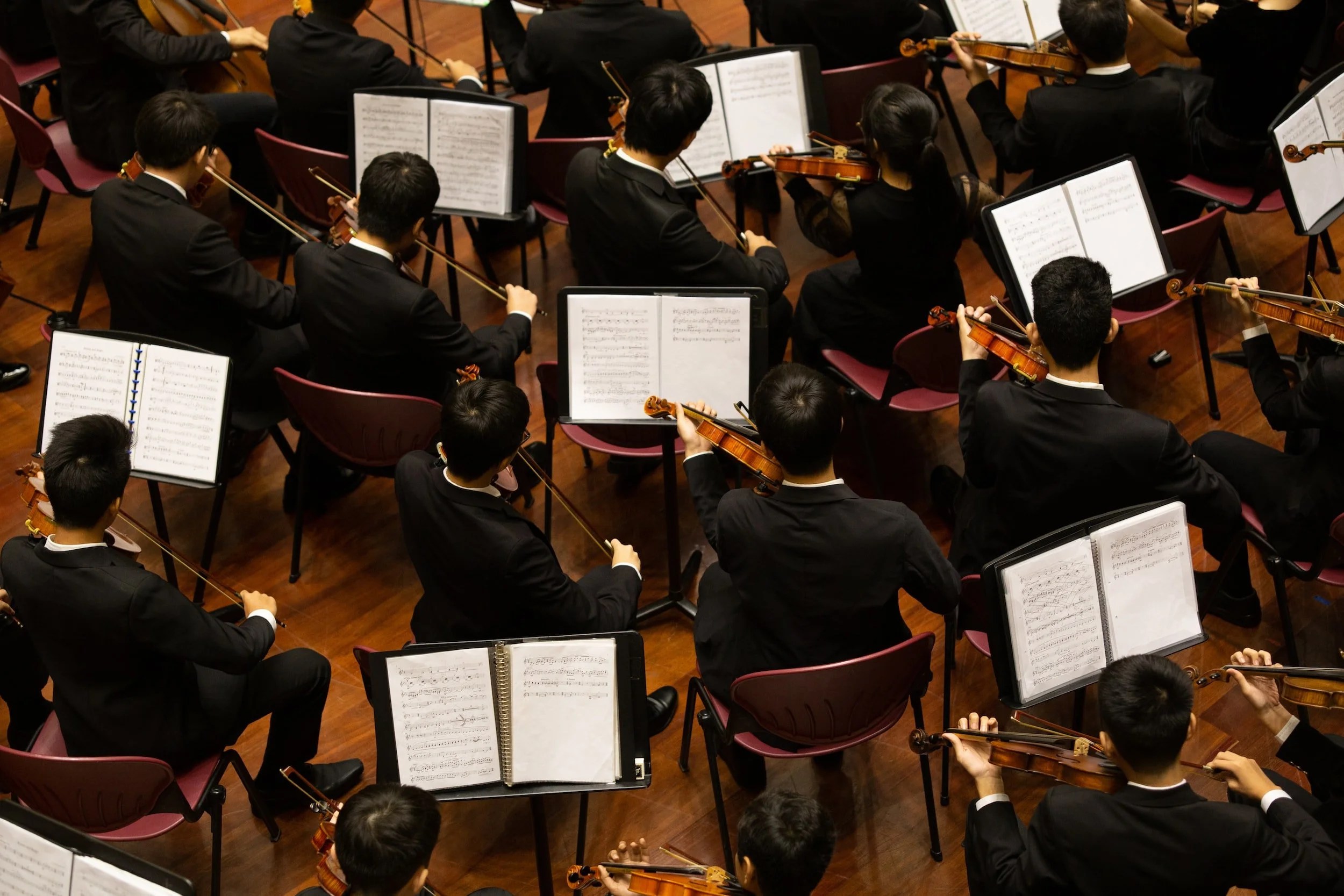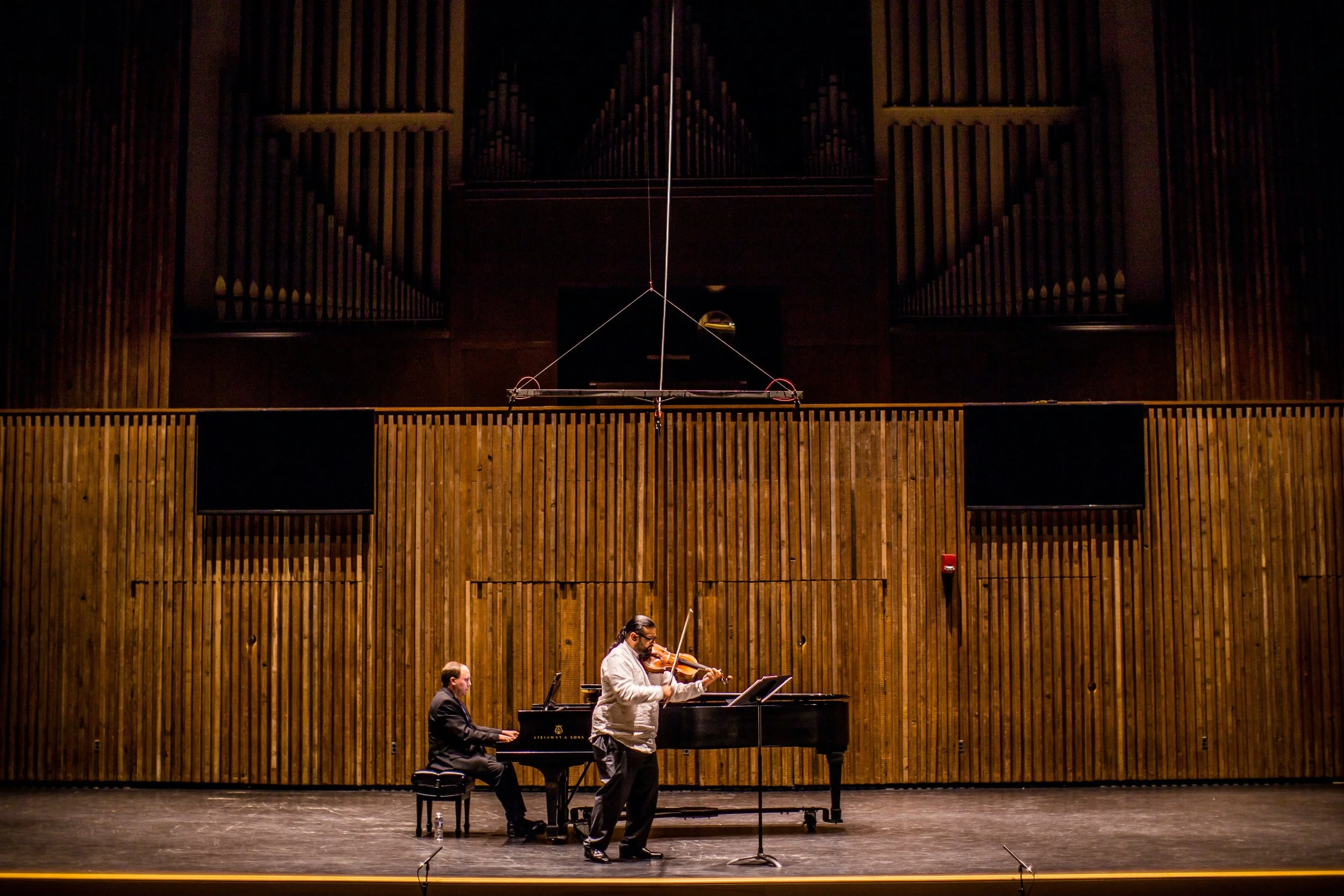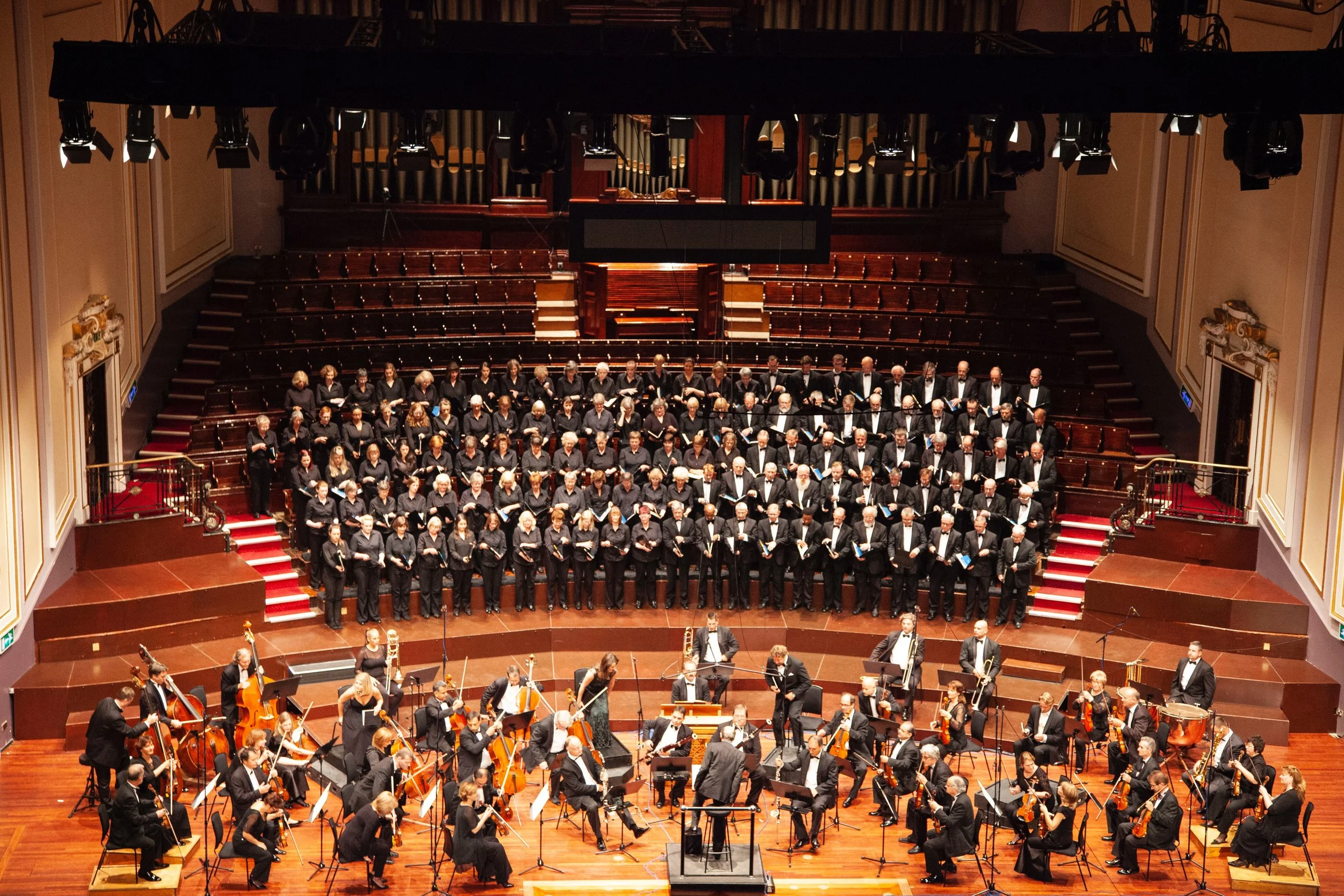A guide to classical concerts
New to classical music? Start here.
The classical world is a bit intimidating if you're just starting out, but it's one of the best things to go out and see if you're learning the violin.
Read on to learn about:
The best places to find local concerts
How to prepare for a classical concert
How to get the most out of your listening experience as someone studying a classical instrument
Listen via Apple Podcasts, Spotify, Stitcher, iHeartRadio, or wherever you get your podcasts.
Where to find classical concerts?
Find classical venues first
You can find concerts by looking up your city + violin/orchestra/classical concerts.
The goal is to find which venues in your city host classical music.
Look for:
Symphony orchestras
Chamber orchestras
String quartets
Indie ensembles
Recital halls
Other venues that often host classical concerts:
Local libraries
Theaters
Music conservatories
Universities
Then, browse their listings and buy your tickets
Look for violin festivals and competitions in your area
Check out your local classical festivals— these often happen in the summer, but you can find them year round. For instance, Montreal hosts the McGill International String Quartet Academy festival, Festival Bach Montreal, Montreal Chamber Music Festival, and dozens more throughout the year. Don’t feel limited to big cities: sometimes festivals are hosted off the beaten path.
You could also check out violin competitions, such as the Menuhin International Competition for Young Violinists. This is a great place to discover up-and-coming artists— future big names of the violin world.
And if you live in Europe, lucky you. There are amazing concerts in the most beautiful spaces everywhere— definitely worth checking out.
Prepare for a classical concert
Listen to the program
In the weeks before the concert, listen to the program a few times to familiarize yourself with the piece. Your ear will have an easier time following the program if it’s not brand new.
Read the program notes
Read through the program notes to learn about the context in which the piece was written, more about the composer, and the performers interpreting the work (especially if there is a soloist).
During the concert
Learn by watching
Observe the violinists and see if you can notice things you are practicing at home.
How they’re sitting
How they hold their bow
What their vibrato looks like
How the sections coordinate with each other.
After the concert
Form an opinion
Forming your own opinion about a classical concert, even if you’re new to the classical world, is an important step in training your ear. So ask yourselves these questions:
What did you love about the performance? The soloist, the program selection, the interpretation of a certain piece?
Is there anything you didn’t like about the concert? Was a tempo too fast, or was there a piece you didn’t enjoy?
Keep a listening journal
Write down your thoughts about the program. As you get more familiar with classical music, go back and compare your notes— it’ll be interesting to see what your initial thoughts were towards the piece, especially if it’s your first time hearing it live.





